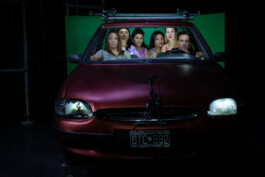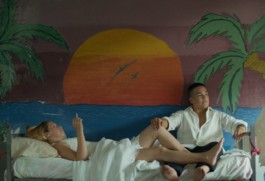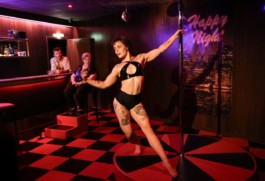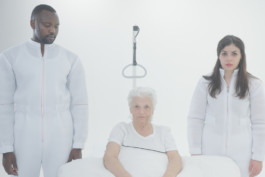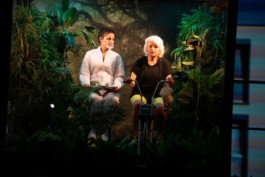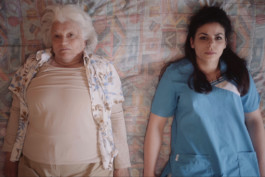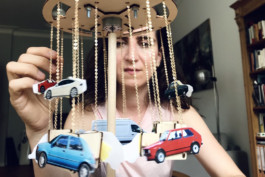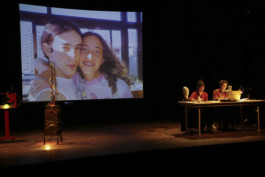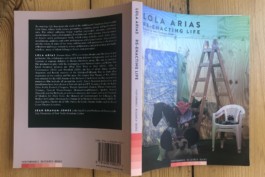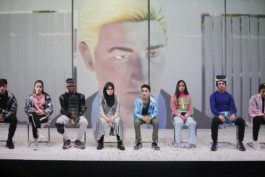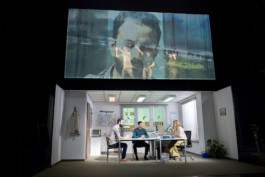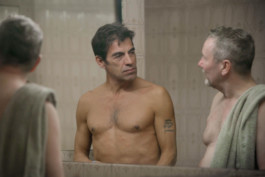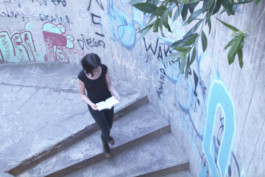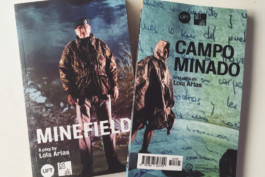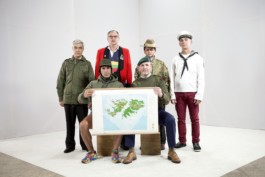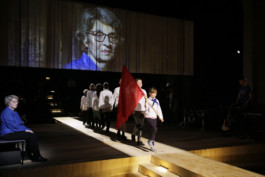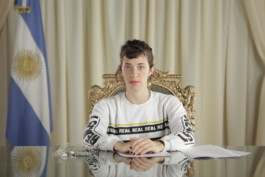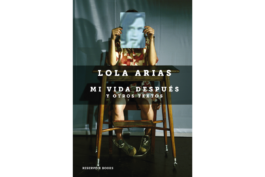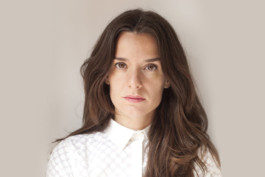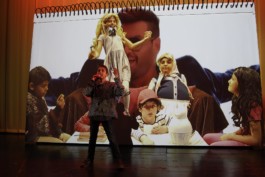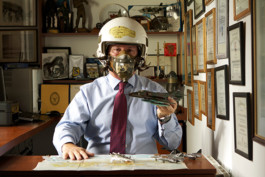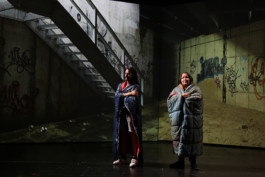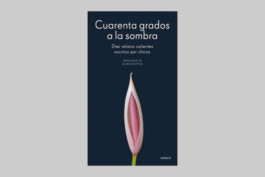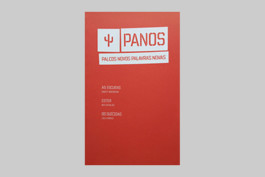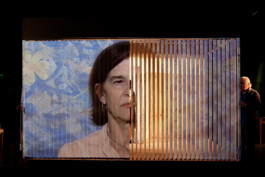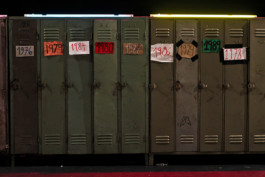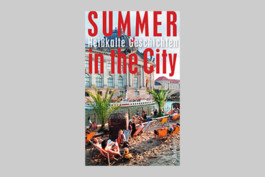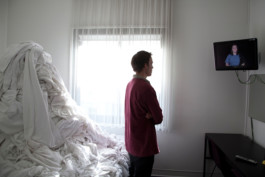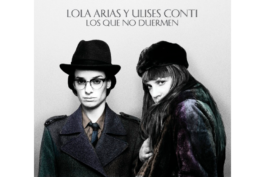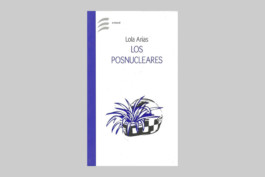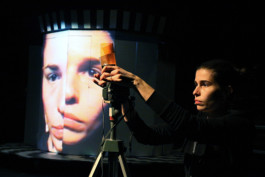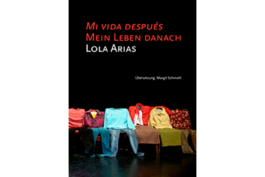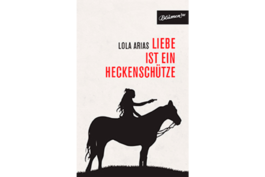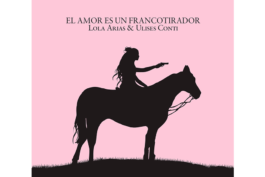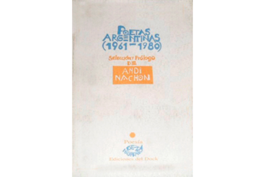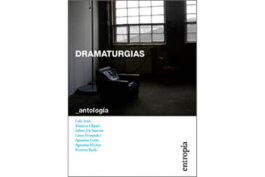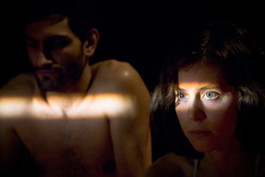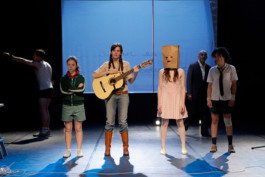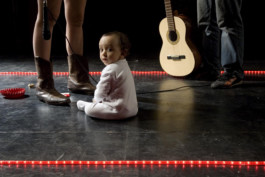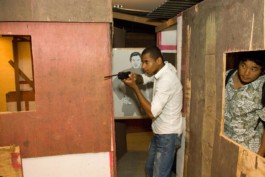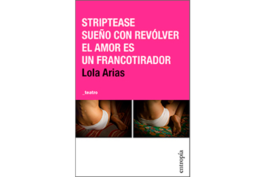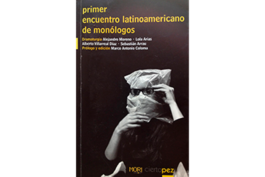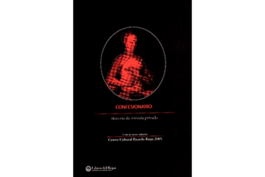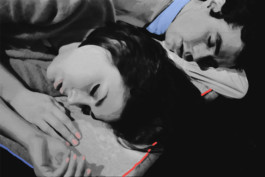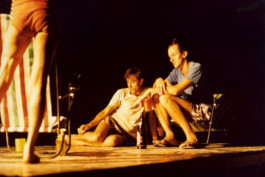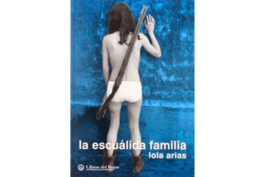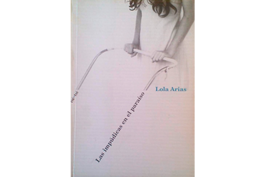ANDROGYNOUS
PORTRAIT OF A NAKED DANCER
2025
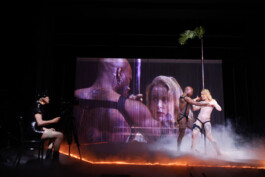
©Eugenia Kais
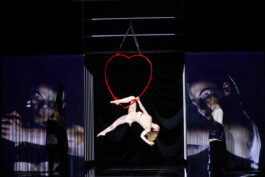
© Eugenia Kais
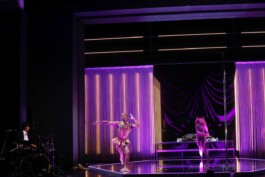
© Eugenia Kais
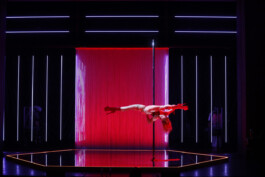
© Eugenia Kais
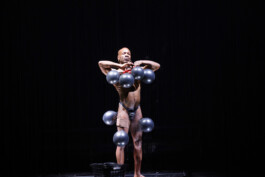
© Eugenia Kais

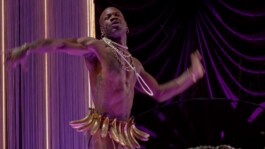
«Anita Berber vivió en tiempos de incertidumbre, justo antes del ascenso del régimen nazi.
Yo vivo en tiempos de incertidumbre, justo antes de... quién sabe qué.
Anita murió hace cien años, en un hospital de Kreuzberg. Tenía 29 años.
Yo hoy tengo 32 y no tengo intención de morir joven
Androgynous. Portrait of a Naked Dancer (Andróginx. Retrato de unx bailarinx desnudx) es un proyecto de Lola Arias en colaboración con River Roux, una intérprete y bailarina de caño que ha transitado distintos géneros y espacios, desafiando tabúes a través de su práctica artística. Acompañada por Bishop Black y Dieter Rita Scholl, juntxs vuelven sobre los pasos de Anita Berber y otras figuras legendarias del Berlín de los años veinte. A pesar de su corta vida, el legado de Berber perdura: con sus actuaciones cargadas de ambigüedad de género, erotismo y horror transgredió muchas de las normas de la época. Sin embargo, su implicación en la contracultura berlinesa a menudo se reduce al escándalo
En un espacio que se asemeja a un club nocturno, lxs artistas encarnan a sus alter egos de hace cien años. Reconstruyen —con la ayuda de críticxs, fotos, películas mudas e informes policiales— bailes y actuaciones que eran radicales y provocativas para una sociedad que acababa de salir de la Primera Guerra Mundial. ¿Qué queda de estas legendarias actuaciones que fueron censuradas y canceladas por el conservadurismo creciente al final de la era de Weimar? ¿Cómo podemos reconstruir una obra de arte si lo único que sabemos de ella es lo que está escrito en los informes policiales? ¿Cuánto del arte que está siendo creado hoy será censurado y desaparecerá mañana
Androgynous. Portrait of a Naked Dancer propone un viaje en el tiempo, entrelazando las historias de lxs artistas de la década de 1920 con las experiencias vividas por lxs artistas nocturnos de hoy. En ese cruce, explora los complejos entramados de la resistencia, poniendo de relieve el papel de la contracultura en la creación de espacios de cuidado, disidencia y supervivencia colectiva en tiempos de crisis
Androgynous. Portrait of a Naked Dancer es un proyecto de Lola Arias en colaboración con River Roux, producido por Maxim Gorki Theater and Lola Arias Company.
CRÉDITOS
DIRECCIÓN Y TEXTO Lola Arias
CON Bishop Black, River Roux, Dieter Rita Scholl
MÚSICA EN VIVO Katharina Ernst
CONCEPTO Lola Arias, River Roux
DRAMATURGIA Bibiana Mendes
INVESTIGACIÓN River Roux, Bibiana Mendes
ESCENOGRAFÍA Irene Ip
VESTUARIO Tutia Schaad
COMPOSICIÓN MUSICAL Katharina Ernst, Damián Noguera
COREOGRAFÍA Colette Sadler
VÍDEO Stefan Korsinsky | Expander Films
ILUMINACIÓN Irene Ip, Catalina Fernández, Arndt Sellentin
PRODUCCIÓN, DISTRIBUCIÓN Y GESTIÓN DE LA COMPAÑÍA Laura Cecilia Nicolas
ASISTENTE DE PRODUCCIÓN Belén Marinato
MIRADA EXTERNA Johannes Kirsten
ASISTENTE DE DIRECCIÓN Jan Termin, Belén Marinato
ASISTENTE DE ESCENOGRAFÍA Anne-Kathrin Müller
ASISTENTE DE VESTUARIO Julia Radewald, Isabel Faulkner
ASISTENTE DE COREOGRAFÍA Roseann Dendy
ASISTENTE DE VÍDEO Zuzanna Marczak
PRODUCIDO POR Maxim-Gorki Theater y Lola Arias Company
RESEÑAS
2026
14 febrero 2026
Maxim Gorki Theater, Berlin, Germany
25 enero 2026
Maxim Gorki Theater, Berlin, Germany
2025
7 diciembre 2025
Maxim Gorki Theater, Berlin, Germany
6, 22, 27 noviembre 2025
Maxim Gorki Theater, Berlin, Germany
WORLD PREMIERE
18 octubre 2025
Maxim Gorki Theater, Berlin, Germany
TOUR MANAGEMENT
contact@lolaarias.com
NOTA DE LA DIRECTORA
Muchas veces es difícil saber en qué momento nace una idea. En el caso de Androgynous, la obra nace de otra obra. En 2023, cuando estaba buscando a lxs protagonistas de Happy Nights, una obra con bailarines y trabajadores sexuales en el Teatro Estatal de Bremen, conocí a River Roux, que en esa época era trabajadora sexual y bailarina de caño. River unía el mundo del trabajo sexual y la danza y por eso, se convirtió en una de las figuras centrales. Después del estreno, vi en River un potencial enorme y quise seguir trabajando con ella. Durante los ensayos, River había hablado de su fascinación por Anita Berber. Yo no conocía mucho a Anita y me pareció una buena idea hacer una obra sobre la vida de alguien que está obsesionadx con la vida de otra persona que vivió cien años antes. Así fue que River y yo, junto con la dramaturga Bibiana Mendes, empezamos la investigación.
Mientras yo todabvía estaba trabajando en Los días afuera en Argentina, River fue a revisar los archivos de Anita Berber en Colonia y Berlín y empezamos a juntar materiales de su vida, sus danzas, sus películas y el contexto de la República de Weimar. Poco a poco, empezamos a darle forma al proyecto y a entender que lo interesante era como una bailarina de la noche reconstruye la vida de otra bailarina que hizo de su desnudez un arma de resistencia. Y así como River había pasado del Strip Club al teatro burgués, Anita había hecho un camino inverso: de la escuela de Ballet hacia los clubes nocturnos - siendo parte de los Ballets Desnudos para luego convertirse en una figura muy radical de la danza y la performance.
Cuando empezamos los ensayos, yo no estaba segura de si debía haber unx únicx protagonista, pero luego me di cuenta que necesitaba que River estuviera acompañada de otrxs performers para mostrar también la importancia de la comunidad en la vida nocturna. Y tras audicionar a varixs personas, nos enamoramos de Bishop Black y Dita Rita Scholl. Dita traía a la obra la historia de los movimientos gays en Alemania y el cabaret queer en los años 80 y 90s y BIshop conectaba con otros géneros, como el arte performático, el porno queer y el burlesque.
Lo poco que sabemos de las danzas de Anita es a través de archivos de la policía, críticas y algunas fotos. Nadie sabe exactamente cómo fueron esas performances. River, Bishop y Dita reconstruyen un archivo en pedazos, y es en ese espacio entre la reconstrucción y la imaginación que la obra tiene lugar.
Androgynous conecta dos momentos históricos- la Berlin de 1920 y la del 2020- y la amenaza fascista de ayer y hoy, a través de una obra donde el cuerpo se vuelve una herramienta de lucha y resistencia. Así como Anita Berber usaba su cuerpo para reconstruir su propia experiencia llevando al límite las convenciones de la danza, lxs performers de hoy nos confrontan con la historia de sus propios cuerpos, atravesados por el deseo, la mirada social y las opciones de autoexplotación a las que nos expone el Capitalismo.
Lola Arias
